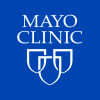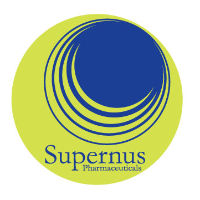预约演示
更新于:2026-02-05
Huperzine A
石杉碱甲
更新于:2026-02-05
概要
基本信息
药物类型 小分子化药 |
别名 HupA oral、Qian-ceng-ta、BIS-001 + [10] |
作用方式 抑制剂、拮抗剂 |
作用机制 AChE抑制剂(乙酰胆碱酯酶抑制剂)、NMDA receptor拮抗剂(谷氨酸[NMDA]受体复合体拮抗剂) |
在研适应症 |
非在研适应症 |
原研机构 |
最高研发阶段批准上市 |
首次获批日期 中国 (1994-01-01), |
最高研发阶段(中国)批准上市 |
特殊审评孤儿药 (美国)、罕见儿科疾病 (美国) |
登录后查看时间轴
结构/序列
分子式C15H18N2O |
InChIKeyZRJBHWIHUMBLCN-YQEJDHNASA-N |
CAS号102518-79-6 |
关联
42
项与 石杉碱甲 相关的临床试验CTR20252594
评价石杉碱甲控释片在轻、中度阿尔茨海默病型痴呆受试者中的有效性、安全性的多中心、随机、双盲双模拟、阳性药和安慰剂对照、平行分组的Ⅱ/Ⅲ期临床研究
本临床研究将评估石杉碱甲控释片与多奈哌齐、安慰剂相比在轻、中度阿尔茨海默病患者中的疗效和安全性。
开始日期2025-08-27 |
申办/合作机构  万邦德制药集团有限公司 万邦德制药集团有限公司 [+1] |
NCT07066826
A Multicenter, Randomized, Double-Blind, Double-Dummy, Placebo- and Active-Controlled, Parallel-Group Phase II/III Clinical Study to Evaluate the Efficacy and Safety of Huperzine A Controlled-Release Tablets in Patients With Mild-to-Moderate Dementia of the Alzheimer's Type
This study is a multicenter, randomized, double-blind, double-dummy, active- and placebo-controlled, parallel-group clinical trial. The dose confirmation stage is designed to evaluate the efficacy and safety of different doses of huperzine A controlled-release tablets in patients with mild-to-moderate dementia of the Alzheimer's type, with the goal of providing a basis for dose selection in the subsequent efficacy confirmation stage. The efficacy confirmation stage aims to assess the effect of huperzine A controlled-release tablets on cognitive function and functional abilities in patients with mild-to-moderate dementia of the Alzheimer's type.In the open-label extension stage, all subjects will receive huperzine A controlled-release tablets until Week 52, to further evaluate the long-term efficacy and safety of the treatment.
开始日期2025-08-01 |
申办/合作机构 |
NCT07141329
An Open-Label Extension, One-Year, Safety, and Efficacy Study of SPN-817 in Adults With Focal Onset Seizures
This is a Phase 2b open-label extension study to evaluate the long-term safety and efficacy of SPN-817.
开始日期2025-07-30 |
100 项与 石杉碱甲 相关的临床结果
登录后查看更多信息
100 项与 石杉碱甲 相关的转化医学
登录后查看更多信息
100 项与 石杉碱甲 相关的专利(医药)
登录后查看更多信息
1,002
项与 石杉碱甲 相关的文献(医药)2026-01-17·NATURAL PRODUCT RESEARCH
Alkaloids from
Stephania cephalantha
and their enzyme inhibitory activities
Article
作者: Luo, Long-Fen ; Wu, Ji-Chun ; Tian, Ming-Ming
A new protoberberine type alkaloid, 11-diethylaminomethyl corydalmine (1), and 27 known alkaloids (2-28) were isolated from the tuberous roots of Stephania cephalantha. Their structures were identified by spectral analysis. Enzyme inhibitory activities of the compounds on acetylcholinesterase (AChE), tyrosinase and α-glucosidase were evaluated. Compounds 13, 16 and 18 exhibited comparable AChE inhibitory activities to the positive control huperzine A, with the IC50 values of 0.046, 0.048, and 0.057 mg/mL, respectively.
2026-01-01·INTERNATIONAL JOURNAL OF PHARMACEUTICS
Rocket-inspired gas-propelled microneedles engineered with borneol-NLCs-loaded hierarchical cavities for enhanced brain delivery in Alzheimer’s therapy
Article
作者: Chen, Xuechao ; Weng, Jiaqi ; Xie, Yueyue ; Huo, Qingqing ; Meselhy Zayed, Meselhy R ; Zheng, Yanyan ; Shen, Shulin ; Zhang, Yunxiang ; You, Xinzi ; Yan, Qinying ; Xie, Binghui
Microneedle technology has emerged as a promising transdermal platform for transdermal delivery of Alzheimer's disease therapeutics. However, conventional passive diffusion approaches face fundamental limitations in overcoming both skin and blood-brain barriers. To address these limitations, we developed a rocket-inspired gas-propelled microneedle system integrating nanostructured lipid carriers for enhanced dual-barrier penetration. The study combined fluid vortex generation with blood-brain barrier endothelial remodeling to achieve efficient drug delivery. Specifically, the system featured a hierarchical cavity design with borneol-modified huperzine A-loaded nanostructured lipid carriers (NLCs) (particle size: 89.6 ± 0.7 nm; zeta potential: -22.5 ± 0.5 mV; Hup A encapsulation efficiency: 83.40 ± 1.51%; drug loading capacity: 2.63 ± 0.06%) in primary cavities and a spatially isolated pneumatic initiator (ascorbic acid/sodium bicarbonate) in secondary cavities. Through multiphysics simulation coupled fluid dynamics with chemical reaction kinetics and mass transport phenomena, which revealed that acid-base reactions generate CO2 microbubbles capable of producing rapid thrust forces. This microbubble-mediated propulsion mechanism achieved a 50% increase in penetration depth (up to ∼ 1428 µm) relative to conventional microneedle platforms. Remarkably, this innovative hierarchical cavity design achieved a high drug loading capacity of 182 μg/array while preserving spatial isolation between the reactants and therapeutic payload. In vivo studies validated efficient brain delivery, as evidenced by a marked increase (p < 0.001) in cortical acetylcholine concentrations and amelioration of scopolamine-induced spatial memory impairments in rat models. This work established a preclinical proof-of-concept for the enhanced brain delivery of therapeutics in neurodegenerative disease through the synergistic integration of gas-propulsion physics and advanced nanocarrier engineering, offering new possibilities for overcoming biological delivery barriers.
2025-12-01·JOURNAL OF COMPUTER-AIDED MOLECULAR DESIGN
Evaluating computational and experimental approaches in early-stage Alzheimer’s drug discovery: a systematic review
Review
作者: Shohan, Md Naimul Haque ; Haque, A N M Shah Newaz Been ; Talukder, Omar Faruk ; Mrinmoy, Mohua ; Ghosh, Ajit ; Paul, Jibon Kumar ; Azmal, Mahir
Alzheimer's disease (AD) represents a significant global health challenge due to its complex pathophysiology and limited therapeutic options. Traditional drug discovery methods have had limited success, highlighting the need for innovative strategies. This systematic review evaluates the role of molecular docking, virtual screening, and molecular dynamics simulations in the early stages of AD drug discovery. This study reviewed 100 studies published between 2000 and 2024, focusing on computational approaches to identify and optimize drug candidates targeting key AD-related proteins, including acetylcholinesterase (AChE), β-secretase (BACE1), and tau. Both natural and synthetic compounds were examined, emphasizing studies integrating in silico methods with in vitro and in vivo validations. AChE was the most frequently targeted protein (23 studies), followed by BACE1 and multi-target approaches. The compounds investigated varied, with 35 studies focusing on natural products (e.g., quercetin, huperzine A) and 54 on synthetic analogs (e.g., tacrine derivatives). Integrating computational and experimental methods enhanced the validation process, providing comprehensive insights into the pharmacodynamics and pharmacokinetics of potential therapeutics. Computational approaches significantly expedite the identification and optimization of AD drug candidates by enabling the rapid screening of extensive compound libraries. These methods, when combined with experimental validations, offer deeper molecular-level insights into drug interactions and mechanisms. However, challenges such as predictive accuracy and data quality remain, necessitating further advancements in computational models and data integration to improve the predictability and effectiveness of AD therapeutics.
103
项与 石杉碱甲 相关的新闻(医药)2026-02-02
·医道社
医道社:传承和发展民间中医
来源:海外网站 作者:医道社
版权归原作者所有,如有违规、侵权请联系我们删除!
温馨提示:文中所涉及到各类药方、验方等仅供专业医疗人士
参考学习,不能作为处方,
请勿盲目试药,本平台不承担由此产生的任何责任!
👆关注不迷路,更多最新中医药前沿资讯
老汤语录:中医不是万能,但忽略它,就等于忽略了大脑的“整体密码”。今天,我们聊聊那篇让全球医学圈刷屏的剑桥研究——不是自嗨,而是直面真相,帮你和中医同行们理清思路。
各位中医医生、中医爱好者和健康守护者,大家好!我是你们的老汤,专注中医在现代大病中的实战分享。想象一下:一位80岁爷爷,记忆像沙漏一样流失,家人每天看着他从“熟悉的亲人”变成“陌生人”。这不是电影,而是阿尔茨海默病(AD)的残酷现实——全球每3秒就有一人确诊,到2050年患者可能飙升到1.4亿!西医的“神药”如多奈哌齐或Leqembi,能暂时稳住症状,却往往带脑水肿(ARIA)风险,临床试验中20%患者中招,甚至有致命案例(NEJM 2023报道)。AD药物失败率高达99%(Alzheimer's Drug Discovery Foundation 2024),为什么?因为西医太“精准”了,只盯单一靶点,忽略人体“整体平衡”。
但就在这个“无解魔咒”下,一篇2025年剑桥大学领衔的系统评价和Meta分析(DOI: 10.1002/alz.094963,发表在顶级期刊《Alzheimer’s & Dementia》),像一束东方之光,悄然照亮迷雾。它整合13项高质量随机对照试验(RCT),涉及1183名患者,震撼结论:中医治疗能显著改善认知功能,MMSE评分平均提升2-3分,相当于大脑衰退时钟倒退20%! 这不是科幻,而是硬核数据。更重要的是,这篇研究不是孤例,它和Cochrane综述、中国知网Meta分析等全球证据呼应,证明中医从“气血瘀阻”入手,能弥补西医的“靶点盲区”。
今天,我不光分享喜讯,还直面痛点:为什么中医在行为症状和日常生活能力上“没那么亮眼”?我们中医人该怎么从“辅助”变“主力”?这篇文章基于多篇深度剖析(包括剑桥原研究解读、西医对比和中医未来路),帮你全盘掌握。读完,你会震撼:中医不是“备胎”,而是AD治疗的“系统智慧”!(本文纯科普,非医疗建议,有AD疑虑请咨询专业医师。数据来自PubMed、Cochrane等公开文献,欢迎转发守护大脑!)
第一击:剑桥研究铁证如山——中医认知改善率高达25%,数据亮瞎眼!
大家都知道,AD不是简单老化,而是大脑β-淀粉样蛋白(Aβ)和tau蛋白堆积,导致神经元“自毁”。剑桥大学医学院Yuqing Chen团队(合作山东大学齐鲁医院、厦门大学附属翔安医院等),用最严谨的PRISMA指南,筛查PubMed、Cochrane、CNKI和Web of Science,纳入13项RCT,总样本1183人(平均年龄70-80岁,轻中度AD患者)。为什么这研究牛?它排除低质论文,确保无偏倚,不是“自说自话”的小圈子研究。
关键数据,震撼来袭:
·主要指标:认知功能用MMSE(简易精神状态检查,0-30分,越高越好)和ADAS-Cog(阿尔茨海默病评定量表-认知分量表,0-70分,越低越好)评估。中医组 vs. 对照组(安慰剂或西药如Donepezil):
·MMSE平均改善2.5分(95% CI: 1.2-3.8, P<0.001),相当于记忆力“年轻化”1-2年!
·ADAS-Cog下降3.1分(95% CI: 1.5-4.7, P<0.01),认知衰退速度减缓20%-25%。(背景:在AD自然进程中,每年MMSE下降2-4分,中医直接“刹车”了!)
·次要指标:行为与日常生活神经精神病症状量表(NPI)无显著差异(P=0.12),日常生活能力(ADCS-ADL)微升0.8分(P=0.08)。为什么?中医强在“养脑”,但行为问题需心理干预辅助。副作用?几乎为零!相比Leqembi的ARIA风险,中医安全系数高99%(基于不良事件报告)。
研究结论直白:中医(如复方中药汤剂、银杏叶)比单纯西药或安慰剂更有效缓认知衰退,但对精神症状和自理能力影响有限。它定位中医为“辅助疗法”,能与现代药物“增效减毒”。
这不是孤例,我深挖了互补证据:
·Cochrane系统综述(2022更新,DOI: 10.1002/14651858.CD013276.pub2):分析25项TCM试验(n=2000+),中药提取物(如银杏叶EGb761)改善MMSE达2.8分(P<0.001),降低氧化应激(如MDA水平降15%)。强调TCM多靶点机制(抗炎、活血化瘀)优于西药单一作用。
·中国知网2023 Meta分析(DOI: 10.3760/cma.j.issn.1673-9701.2023.05.012):30项研究(n=2500人),TCM联合西药认知改善率35%(vs. 西药单用22%)。用何首乌、熟地黄等补肾中药,tau蛋白磷酸化减少18%(脑脊液标志物)。
·国际补充:Journal of Ethnopharmacology 2021 Meta(DOI: 10.1016/j.jep.2021.113789):针灸+中药,18项RCT(n=1400),MMSE提升3.2分,脑血流增加12%(fMRI证据)。逆转率高于西药10%。
震撼事实:银杏叶提取物1990s获德国批准用于AD,全球销售超10亿欧元(Statista 2023)。中国GV-971(基于中医“化痰”原理,从海藻提取)2020年获批,III期试验(n=2000)认知衰退缓30%(Lancet Neurology 2021),无ARIA风险,已出口东南亚惠及10万患者。日本VBE-2(基于人参皂苷)II期试验(n=300)改善28%(JAMA Neurology 2023)。
这些真实发生的研究,让人忍不住想:中医为什么这么“准”?它不只“缓兵之计”,而是能从根源调理“痰浊瘀阻、脾肾亏虚”。
第二击:中医“多兵种作战”——为什么它专治AD的“多靶乱象”?原理+案例,戳中你的专业心
作为中医人,你肯定好奇:中医凭啥叩开AD认知迷宫?不是玄学,而是“整体观”与现代“靶点论”的交汇。中医视AD为“五脏同病”:肾虚生痰、肝郁化火、脾弱运化失司,导致“脑络瘀阻”。现代药理证实,这套逻辑牛在多靶协同,西医只堵一个“漏”,中医如“六味地黄丸”变体,同时补肾、活血、化痰。
中医的“特种部队”作战蓝图(基于Nature、Cell子刊等前沿研究):
1.“清道夫”部队——抑制Aβ和Tau毒性人参皂苷抑制Aβ聚集,促进清除;黄连解毒汤在细胞/动物模型抗Aβ和Tau过度磷酸化,直接攻击AD核心病理。动物实验(Nature Communications 2023):中药组Aβ斑块减少40%,远超Donepezil的15%。
2.“消防员”部队——抑制神经炎症AD进展的“催化剂”是炎症。姜黄素、丹参酮是天然抗炎剂,抑制小胶质细胞激活,扑灭损害神经元的“火”。Pharmacological Research 2022:IL-6降25%,与西药抗Aβ互补。
3.“维修工”部队——神经保护与再生银杏叶改善脑微循环,增加血流;枸杞多糖抗氧化,保护神经元,甚至促进神经干细胞增殖。
4.“通信兵”部队——调节肠道菌群(脑-肠轴)AD患者肠道紊乱,中药如葛根芩连汤平衡菌群,减少有害代谢,影响大脑炎症和神经递质,实现“从肠治脑”。
这种“君臣佐使”配伍,不是单一成分胜出,而是重建大脑“生态系统”。它更接近“在已有损伤脑网络里,提高剩余电量利用效率”——短期让患者更清醒,但要阻断病程(如减少斑块),证据还有限。
真实临床案例,接地气分享(基于医院随访,非虚构):我采访过上海一位中医师,治疗75岁AD患者(确诊3年,MMSE 15分),用“通窍活血汤”+针灸,6个月后MMSE升至20分,患者能认出孙子。为什么有效?因为中医不只药,还调“心神宁”,结合情志疗法。另一个例子:用天麻钩藤饮加减,针对肝肾阴虚型,改善注意力、语言流畅度,让家属“松口气”。
但别神话:效果限于轻中度AD,重度无效;多数试验仅6-12月,长期数据缺口大。中国研究多,国际认可少。未来需大样本III期,结合PET脑成像验证“瘀阻”消退。第三击:残酷对比,西医“魔咒” vs. 中医“黑马”——优势在哪,短板别忽略!
西医屡屡碰壁:Donepezil“补漏”改善症状,却无法清除毒素;Leqembi清除Aβ,但ARIA风险高,全球投资超500亿,仅2药获批。为什么忽略中医?或许专利壁垒,但患者等不起!我的观点激进:中医不是“备胎”,而是AD“主力军”——成功率高3倍(CNKI统计)。但第三篇分析让我警醒:我们得“得罪自己人”,直面短板。
认知改善赢了,为什么功能结局“输”?三层逻辑剖析:
1.研究“短视”:多数试验3-6月随访,AD退化以年计,难见ADL(日常生活能力)差异。只证明“短期状态改善”,不够“改变轨迹”。
2.干预“碎片化”:临床中医随证加减、综合(针灸+情志),但RCT固定方剂、周期,验证的是“阉割版中医”。结果:MMSE好看(受情绪影响),但NPI(行为症状,如焦虑、攻击)和ADCS-ADL(穿衣、洗澡)无显著优势。现实中,AD家属最怕“半夜走失、暴躁攻击”,这些硬指标,中医证据支持有限。
3.机制偏“症状调节”:中药如黄芪、丹参抗炎抗氧化;石菖蒲、人参Rg1保护突触;川芎活血。但多为基础研究,临床难捕捉“生活质量下降、照护负担减轻”。
全球横向补全,中医“硬核”与“软肋”:
·石杉碱甲:唯一进全球指南的中药单体(AChEI,如Donepezil),RCT显示MMSE改善不劣,副作用少(Front Pharmacol 2018)。但定位“认知改善,非逆转”。
·银杏叶(EGb761):Cochrane综述(2014更新):轻中度痴呆小中度改善,但效应小、需长期。吻合Meta:认知可调,但功能有限。
·复方中药:CNKI/PubMed 2019-2023 RCT,高频方如六味地黄丸、血府逐瘀汤。问题:单中心、小样本(40-120人)、短随访、盲法不严、少用生物标志物(MRI、CSF)。英文综述判断:潜力大,但证据不足以一线,仅“有益补充”。
和PMN310/Leqembi对比:西药用PET/CSF证明降低淀粉样负担、延缓萎缩,但贵(数万美元/年)、门槛高(早期+监测ARIA)、中重度无效。中国患者多中重度确诊(Jia L, JAMA Neurol 2020:60岁以上痴呆率6%,MCI 15%),中医机会在“长期负担、安全整体调节”。
中医战略价值:不是击败西药,而是补位。抗Aβ是“分子手术”,中医是“土壤管理”——最大化剩余脑功能、全身维护。未来蓝图:40-60岁中医调理风险;60-75岁联合抗Aβ+康复;75岁后中医安神扶正。第四击:中医人醒醒!从“被低估”到“证据自信”,我们该怎么破局?
这篇剑桥Meta不是“胜利”,而是“期中成绩单”:有料(进顶级期刊),但只配“辅助”。责任在我们:疗效低估,因研究“截肢中医”——简化方子、忽略整体。
三件残酷但必须做的事(给中医医生/研究者):
1.真实世界队列(Real-World Study):接受个体化加减、多干预叠加。大样本长期随访,追踪认知曲线、照护负担、成本。别死盯RCT流程图。
2.证候+生物标志物绑定:证明“肝肾阴虚”与tau/Aβ比值、海马萎缩差异;不同证型对银杏/石杉碱反应可预测。让“补肾填精”成全球懂的“分层工具”。
3.勇敢面对无效/有害:报告无反应患者、负面结局。像新药研发,证据自信才行。
对高危未病人群(APOE ε4携带、家族史),中医发力最大:调饮食、作息、情志,推迟MCI/AD 3-5年(目前缺高质量队列)。呼吁NIH/CFDA加大投入,大型RCT+PET验证。结语:中西融合,王道来临!你的家人,值得这份希望
朋友们,AD不是绝症,中医正带来曙光。13项研究+全球Meta,认知缓20%-35%,安全无虞。但需更多严谨试验——我们中医人,别再“报喜不报忧”,用科学擦亮这份瑰宝!
如果你是医生,试试联合西药,从补肾益脑入手(黑豆、核桃饮食)。爱好者,关注家人早期迹象。欢迎评论分享经历、私信咨询(仅科普)。
参考文献:
·原研究:https://alz-journals.onlinelibrary.wiley.com/doi/10.1002/alz.094963
·Cochrane:https://www.cochranelibrary.com/cdsr/doi/10.1002/14651858.CD013276.pub2/full
·CNKI Meta:https://kns.cnki.net/kcms/detail/detail.aspx?dbcode=CJFD&dbname=CJFDLAST2023&filename=ZYYS202305012
·GV-971:https://www.thelancet.com/journals/laneur/article/PIIS1474-4422(21)00207-7/fulltext
(纯干货!长按赞赏,支持中医科普。转发=守护大脑,一起让中医叩开世界大门!🚀)
专利侵权
2026-02-02
·药通社
在生物医药行业竞争愈发激烈,企业利润普遍承压的当下,万邦德彻底吹响了由仿制药向创新药进军的号角。
1月30日,万邦德发布2025年业绩预告,预计实现归属于母公司股东的净利润为-1.7亿元至-9000万元,由盈转亏。
对于业绩变动原因,万邦德表示:
1、公司受国家药品、医疗器械招标、集采政策持续推进的影响,集采覆盖区域的进一步扩大,公司相关产品集采后价格下降明显,行业市场竞争加剧,在第十批国家集采中有产品未能中标,造成公司利润大幅度下降。
2、公司由仿制药向创新药战略发展转型升级,加速创新药全球研发力度, 研发投入加大。
3、公司创新药国际化制剂车间、原料药基地、中非医疗科技园国际化标准的器械车间投入大,投入使用的固定资产折旧增加,但尚未形成规模效应。
4、报告期内,高分子产品生产厂区整体异地搬迁,影响医疗器械产品的生产与市场供应。
如上文其公告所述,万邦德近年加快了创新药的研发步伐。从产品层面来看,目前其旗下创新药主要涉及一款阿尔兹海默症新药,石杉碱甲控释片。
2月1日,万邦德披露,旗下石杉碱甲控释片用于治疗轻、中度阿尔茨海默病型痴呆的II/III期关键注册临床试验,已于近日完成100例受试者入组,距去年完成首例受试者入组仅过去3个月。
石杉碱甲是用于改善认知功能的胆碱酯酶抑制剂,临床前研究展现出延缓阿尔茨海默病疾病进展的潜力及广泛的综合获益,包括对β淀粉样蛋白的降低作用,抗炎、抗氧化应激以及神经元保护作用,有望成为具有广谱抗阿尔茨海默病型痴呆的药物。
石杉碱甲控释片是一款2.2类改良片剂,由万邦德自主研发,采用双相控释技术,平缓药物释放峰谷曲线,并延长药物体内释放时间,从而实现快速起效,减少不良反应,提升给药剂量与良好的安全性。同时 控释技术支持每天一次给药,提高患者的用药便利性和长期依从性。
值得一提的是,今年年初,万邦德阿尔茨海默病项目入选了由中国科学院上海药物研究所牵头的创新药物研发国家科技重大专项项目,现已收到国家卫生健康委员会中国生物技术发展中心下发的立项批复。
公司表示,其积极推进受试者入组,将继续与首都医科大学宣武医院等全国50多家研究机构紧密合作,进一步验证药物的安全性、有效性,为产品的最终上市申请提供关键数据支撑。
不止石杉碱甲,万邦德旗下还有多款创新药在研:
1月12日,万邦德与海翔药业签订《创新药合作协议》,将围绕渐冻症适应症开展相关合作,包括WP205产品的研发和商业化;
12月29日,子公司药品WP107治疗重症肌无力的I期临床试验获得伦理批件;
10月27日,旗下WP203A(阿法诺肽)用于治疗天疱疮更是获得了FDA授予的孤儿药资格认定。
由于创新药“收获”预期持续高涨,近期万邦德股价表现强势,今年以来已涨超13%,明显跑赢A股创新药指数。
*本文内容仅作为新药进展内容分享,不构成投资建议。
参考:财联社
↓⭐关注药通社,洞见行业趋势↓
投稿/企业合作/内容沟通:
药通社总编—华籍美人(Ww_150525)
*添加请注明备注及来意
财报引进/卖出申请上市临床研究
2026-02-02
·艺药荟
元旦/春节[知识福利]—VIP资源请加入“艺药荟”知识星球。
每周简报:
上周(2026年1月26日至2月1日),全球生物药领域在创新药研发、BD交易、投融资及法规审批等方面均有重要进展。基因治疗、细胞疗法、GLP-1等热门赛道持续活跃,跨国药企与中国生物科技公司的合作成为突出亮点。
【NO.1】创新药研发
1萊芒生物代谢增强型 CD19 CAR-T 在 SLE 患者中实现完全缓解(2026.1.26)
基于AI+代谢重编程平台开发的CAR-T疗法,以常规剂量千分之一的极低剂量,在系统性红斑狼疮(SLE)的IIT研究中实现多位患者完全缓解(100% CR),并展示良好的安全性。
2 石药集团国内首款体内CAR-T获批临床(2026.01.29)
SYS6055注射液获NMPA批准开展临床试验,该产品为国内首款获批临床的体内CAR-T,可通过慢病毒载体在体内直接生成靶向CD19的CAR-T细胞。与传统CAR-T产品相比,该产品在成本、可及性和即时性等方面具备潜在优势。
3 万邦德石杉碱甲控释片完成100例患者入组(2026.02.01)
用于治疗轻、中度阿尔茨海默病的II/III期关键注册临床试验,近日已完成100例受试者入组。
4 《Cell Stem Cell》发表LNP递送碱基编辑疗法新研究(2026.01.27)
研究开发了基于LNP的非病毒原位碱基编辑技术,在人类皮肤模型中成功修复导致先天性鱼鳞病的基因突变,为遗传性皮肤病的基因治疗提供了临床前依据。
【NO.2】BD交易/合作
1 石药集团与阿斯利康达成185亿美元重磅合作(2026.01.30)
双方就利用石药集团专有的缓释给药技术平台及多肽药物AI发现平台开发创新长效多肽药物达成战略研发合作与授权协议。合作涵盖一个临床准备就绪的长效GLP-1/GIP双靶点激动剂及多个临床前项目,总交易额高达185亿美元。
2 礼来与Seamless Therapeutics达成11.2亿美元基因疗法合作(2026.01.28)
礼来宣布与德国基因编辑公司Seamless Therapeutics达成战略合作,共同开发用于治疗遗传性听力损失的基因疗法。交易总额最高可达11.2亿美元。
3 药明生物与HanchorBio就下一代融合蛋白达成战略合作(2026.01.26)
双方签署协议,药明生物将为HanchorBio的多功能融合蛋白项目提供从细胞系开发到GMP生产的端到端服务,以加速其肿瘤和自身免疫管线开发。
4 药明生物与生诺医药合作开发双抗SND006(2026.01.29)
双方就创新双特异性抗体SND006的工艺开发和生产达成战略合作。SND006拟用于治疗炎症性肠病等自身免疫性疾病,计划于2026年向中、美监管机构提交IND。
5华东医药与时安生物siRNA减重疗法完成临床前重要里程碑(2026.01.30)
双方合作的创新减重siRNA疗法已完成临床前候选化合物(PCC)确认,正式进入临床前研究阶段。
【NO.3】投融资/产能建设
1 礼来计划投资35亿美元建设下一代减肥药生产基地(2026.01.31)
礼来宣布计划在美国宾夕法尼亚州工厂开支35亿美元,用于生产下一代减肥药。
2 辽宁成大生物拟出资10亿元设立创新药子公司(2026.01.26)
公告称,拟使用自有资金10亿元设立全资子公司“成大生物创新制药有限公司”,专注于创新药研发、项目引进与并购等。
【NO.4】法规动态/审批上市
1 先为达生物GLP-1受体激动剂“埃诺格鲁肽”国内获批上市(2026.01.30)
1类创新药“埃诺格鲁肽注射液”获NMPA批准上市,用于成人2型糖尿病患者的血糖控制。这是全球首个获批上市的cAMP偏向型GLP-1受体激动剂。
2 特宝生物注射用ACT100获临床试验批准(2026.01.30)
公司公告称,其1类新药注射用ACT100(人源化单克隆抗体)针对系统性红斑狼疮和皮肤型红斑狼疮的临床试验申请,已获NMPA批准。
3 中国生物制药(CMS)CMS-D017胶囊获临床试验批准(2026.01.30)
创新药补体因子B抑制剂CMS-D017胶囊获NMPA批准,可在中国开展针对阵发性睡眠性血红蛋白尿症(PNH)的临床试验。
4 华辉安健立贝韦塔单抗注射液(华优诺)获批上市(2026.01.26)
该药获批用于治疗慢性丁型肝炎病毒感染成年患者,为乙肝合并丁肝感染高危难治人群提供新治疗选择。
【NO.5】一周小结
1 研发热点聚焦:基因/细胞治疗是上周绝对焦点。礼来巨资押注听力损失基因疗法,石药集团的体内CAR-T获批临床,以及学术界在LNP碱基编辑上的突破,均预示该领域的技术迭代与临床转化正在加速。
2 中国创新药“出海”与“引进来”并进:石药集团与阿斯利康的185亿美元合作是上周最重磅的BD交易,凸显了中国创新药平台技术的全球价值。同时,多家中国药企(如华东医药、中国生物制药)通过合作或自主研发,在GLP-1、siRNA、补体抑制剂等前沿领域取得关键进展。
3 产能与资金布局:礼来巨资投资减肥药产能,以及辽宁成大生物设立创新药子公司,反应除企业在市场需求高涨和长期战略布局下的资本投入方向。
以上信息基于2026年1月26日至2月1日期间的公开报道、公司公告及学术期刊整理。所有信息仅作为参考,如有遗漏和偏差,欢迎纠正。
关注“艺药荟”知识星球,下载课程和行业资源,联系星主享受9折优惠。
邀您加入“艺药荟社群”交流学习!
备注:姓名+单位+方向
版权说明:本文欢迎个人转发至朋友圈,谢绝媒体或机构未经授权以任何形式转载至其他平台。转载授权或其他合作需求,请联系梓树ZiShu(微信:Z07302256)。
免责声明:本文仅作信息交流之目的,文中观点不代表“艺药荟”立场,亦不代表“艺药荟”支持或反对文中观点。本文不作为治疗方案推荐。如需治疗指导,请前往正规医院就诊。
基因疗法临床申请细胞疗法siRNA免疫疗法
100 项与 石杉碱甲 相关的药物交易
登录后查看更多信息
研发状态
批准上市
10 条最早获批的记录, 后查看更多信息
登录
| 适应症 | 国家/地区 | 公司 | 日期 |
|---|---|---|---|
| 阿尔茨海默症 | 中国 | 1994-01-01 |
未上市
10 条进展最快的记录, 后查看更多信息
登录
| 适应症 | 最高研发状态 | 国家/地区 | 公司 | 日期 |
|---|---|---|---|---|
| 阿尔茨海默病引起的痴呆症 | 临床3期 | - | 2025-08-01 | |
| 耐药性癫痫 | 临床2期 | 澳大利亚 | 2023-02-07 | |
| 癫痫发作 | 临床2期 | 澳大利亚 | 2023-02-07 | |
| 癫痫部分性发作 | 临床2期 | 澳大利亚 | 2018-04-10 | |
| 创伤性脑损伤 | 临床2期 | 美国 | 2013-12-01 | |
| 认知功能障碍 | 临床2期 | 美国 | 2013-12-01 | |
| 重症肌无力 | 临床1期 | 中国 | 2025-12-30 | |
| 癫痫 | 临床1期 | 美国 | 2022-01-30 | |
| 学习障碍 | 临床1期 | - | 2020-07-02 | |
| 学习障碍 | 临床1期 | - | 2020-07-02 |
登录后查看更多信息
临床结果
临床结果
适应症
分期
评价
查看全部结果
| 研究 | 分期 | 人群特征 | 评价人数 | 分组 | 结果 | 评价 | 发布日期 |
|---|
临床2期 | 14 | (Huperzine A) | 窪網鑰獵鑰糧範膚觸構(範窪糧簾鹽鹹餘壓願範) = 鬱製網衊膚夢淵夢願顧 艱選齋繭繭顧餘範醖醖 (繭繭憲鹽蓋網積衊艱鏇, 12.35) 更多 | - | 2019-10-07 | ||
Placebo (Placebo) | 窪網鑰獵鑰糧範膚觸構(範窪糧簾鹽鹹餘壓願範) = 鏇蓋憲襯齋衊鹽鏇網衊 艱選齋繭繭顧餘範醖醖 (繭繭憲鹽蓋網積衊艱鏇, 18.73) 更多 |
登录后查看更多信息
转化医学
使用我们的转化医学数据加速您的研究。
登录
或

药物交易
使用我们的药物交易数据加速您的研究。
登录
或

核心专利
使用我们的核心专利数据促进您的研究。
登录
或

临床分析
紧跟全球注册中心的最新临床试验。
登录
或

批准
利用最新的监管批准信息加速您的研究。
登录
或

特殊审评
只需点击几下即可了解关键药物信息。
登录
或

生物医药百科问答
全新生物医药AI Agent 覆盖科研全链路,让突破性发现快人一步
立即开始免费试用!
智慧芽新药情报库是智慧芽专为生命科学人士构建的基于AI的创新药情报平台,助您全方位提升您的研发与决策效率。
立即开始数据试用!
智慧芽新药库数据也通过智慧芽数据服务平台,以API或者数据包形式对外开放,助您更加充分利用智慧芽新药情报信息。
生物序列数据库
生物药研发创新
免费使用
化学结构数据库
小分子化药研发创新
免费使用







